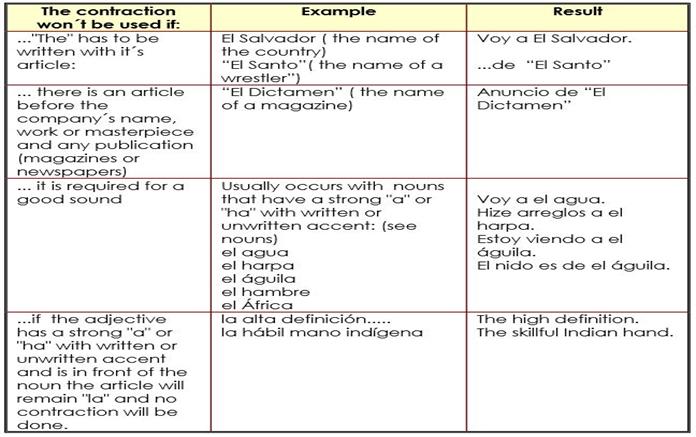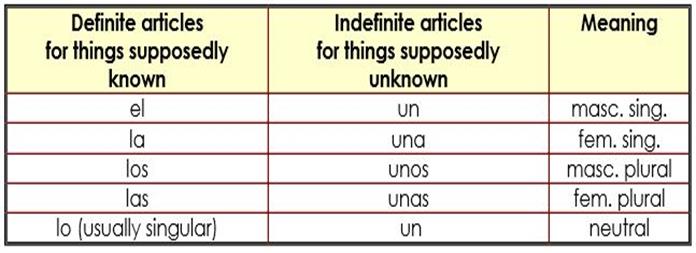The following rules define an article:
a) The article is the word that specifies if the noun is definite (el, la, los, las & lo) or indefinite (un, una, unos & unas).
b) The article precedes to specify the gender and number of the noun.
c) The article agrees with the gender and number of the noun.
d) The article can precede any word, but by doing so, the word automatically is transformed into a noun:
For example:
correr (is a verb, to run)
el correr (is a noun)
e) There are definite and indefinite articles.
f) If the prepositions "a" or "de" appear before the article "el," the following and unique contractions occur:
a + el= al
de + el = del
Exceptions:

g) The article has to be written in front of each noun even if several nouns were listed:
For example:
La casa, la tierra y el árbol....
The house, the soil and the tree...
Una casa, un pedazo de tierra y el árbol....
A house, a piece of land, and a tree...
h) The article has to be written before the noun when making a general statement:
For example:
Tengo un perro. / I have a dog.
Tengo al perro. ( remember a + el = al ) / I have the dog.
i) The article "lo" is used with:
- Masculine adjectives used as a noun:
For example:
Lo bueno, lo excelente.
The good , the excellent.
- With the past participle:
For example:
Lo dicho, lo hecho, lo escrito...
What has been said, what has been done, what has been written...
- With adjectives or adverbs meaning “how”:
lo + adj. + que
or
lo + adv. + que
For example:
lo fácil que es.
how easy it is.
- Using the following expression:
lo + de + a noun, adverb or infinitive verb:
For example:
Lo de María es importante.
That of Maria is important.
- In idiomatic expressions:
a lo largo de / along
a lo lejos / in the distance
a lo más / at the most
a lo mejor / probably
por lo menos / at least
por lo general / generally
por lo pronto / for the time being
por lo tanto / consequently
por lo visto / apparently
para lo que / for what
por lo que / for that reason

